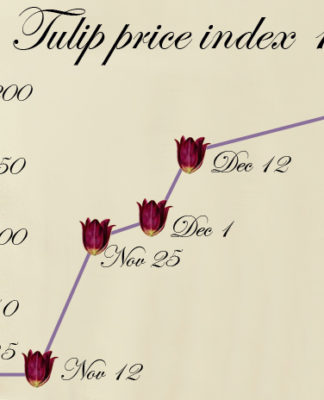Oftentimes, many people attempt to explain the complicated concepts of economics and finance, despite the fact that simple terms rarely do justice to the complexities therein.
A perfect example is when financial experts and economists use the terms “bulls” and “bears” when discussing the stock market.
“When describing sentiment in the stock market, using terms like ‘bear’ and ‘bull’ can assist you in comprehending stock movements more clearly”, says Richard Meyer Cayne of Meyer International in Bangkok, Thailand. “You can then make better decisions regarding your investments with this knowledge”.
What does “bull” and “bear” mean?
Essentially, if the market has seen a 20% or more increase in value over a long period it is referred to as a “bull” market. The opposite- a 20% or more decrease- is what’s referred to as a “bear” market. A “long period” is at least two months’ time.
Although there’s no explicit history as to why these two animals were used to represent each respective market, it is generally believed that the bull is used for upwards markets because of the nature in which it attacks, driving its horns upward. Bears tend to swipe downward with their claws, which perhaps explains why the bear symbolizes a drop in the market.
What does that mean?
During a bull market we generally see corporate profits increase, heightened confidence among consumers and strong economic growth. This bump inspires confidence in investors to jump into the market and seize on the growth, which in turn creates an even greater rise in the market.
Sooner or later, however, the growth will decelerate or even begin to backslide, which inevitably results in a lack of market confidence and, at some point, a sell-off. Depending on how steep that decline may or may not be, this is when a bear market can occur. Due to the fact that these states are determined by numbers of a historic nature, most people generally don’t realize that they are in a bull or bear market until after the fact.
While there are certainly indicators, there will always be a certain degree of risk in the markets, but of course, there is risk with any investment decision. While the natural inclination would be to sell in a bull market, it is difficult to foretell when the peak point to sell will occur. And while a bear market may be a good time to buy, it’s difficult to know which stocks will generate profits or recover on the upswing.
What should you do?
Market fluctuations such as these are just one of myriad reasons as to why it is imperative that you diversify your portfolio.
Unless scrutinizing markets all day long and day trading until your blue in the face works for you, you need to find a way to make your investments work for you while you carry on with your life.
“I realize that I’ve said it before, the importance of diversifying your portfolio cannot be stressed enough, whether you’re about to retire or just getting started”, explains Richard Cayne. “It’s important that you discuss your portfolio with a trusted financial advisor to ensure that the markets are working for you.”
Richard Meyer Cayne
Richard Meyer Cayne of Asia Wealth Group Holdings, the Meyer Group, Meyer Asset Management and Meyer International Ltd has been involved in wealth management planning for decades. Originally born in Montreal Quebec, Canada, he later relocated to Tokyo, Japan for over 15 years and now resides in Bangkok, Thailand. While he runs the Meyer Group and serves as the high credibility CEO of Asia Wealth Group Holdings Ltd, a London, UK Stock Exchange-listed Financial Holdings Company, as well as the Managing Director of the Meyer Group of Companies www.meyerjapan.com. and has additionally been the managing director of multiple organizations that specialize in helping high net worth individuals with succession planning .
Having worked with clients all over the globe with everything from portfolios to bonds to mutual funds to offshore investing to investing in retirement for your golden years, Richard Cayne of Meyer International can help you invest the right way and protect your cash. Richard has been a financial advisor involved in wealth management planning solutions and asset management in Asia for over 25 years and while living in Tokyo, Japan, he assisted many high net-worth Japanese families create innovative international tax and wealth management planning solutions. The financial holding public company of which he is CEO can be seen at Asia Wealth Group Holdings Ltd or the stock exchange link:
https://www.aquis.eu/aquis-stock-exchange/member?securityidaqse=AWLP
Asia Wealth Group Holdings Ltd – Richard Cayne Thailand. Meyer Asset Management Ltd has been in the wealth management space for over 25 years and uses fundamental analysis along with modern portfolio theory.
His image worldwide as a professional advisor has been sterling and he maintains a firm command and understanding of all things finance-related.















